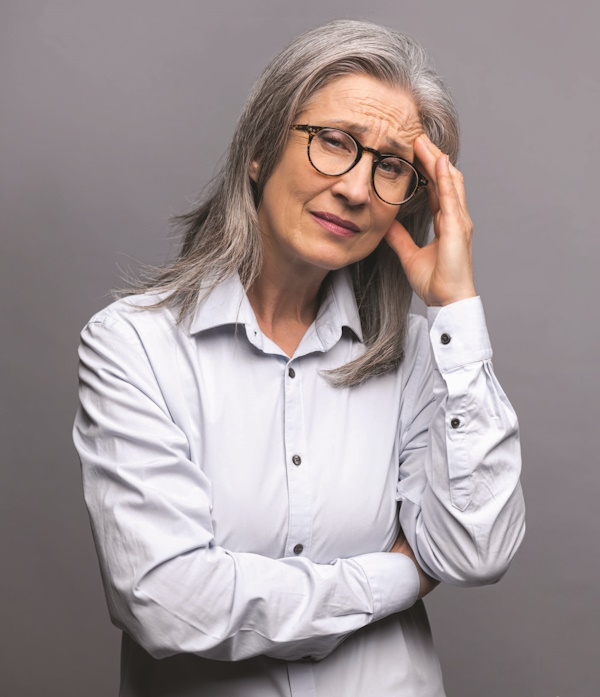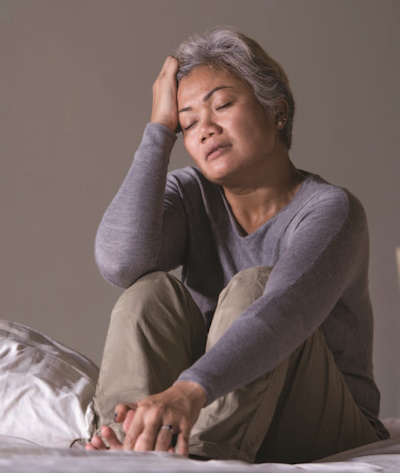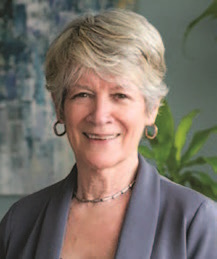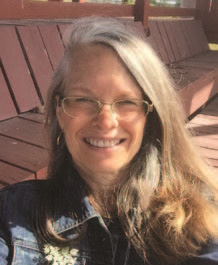ADHD in Adults at Midlife
Kathleen Nadeau, PhD, interviewed by Susan Buningh, MRE
Download PDF
 While most of the available information about ADHD deals with how it affects children and teenagers, we know it is a lifelong condition. How does ADHD affect people who are age fifty and older? Why are diagnoses increasing in this age group? What special challenges do they face, and how can they improve their daily lives?
While most of the available information about ADHD deals with how it affects children and teenagers, we know it is a lifelong condition. How does ADHD affect people who are age fifty and older? Why are diagnoses increasing in this age group? What special challenges do they face, and how can they improve their daily lives?
Joining ADHD 365 host Susan Buningh for this important conversation was psychologist Kathleen Nadeau, founder of the Chesapeake Center for ADHD and author of more than a dozen books on ADHD. Dr. Nadeau discusses what ADHD looks like in older adults, the ways ADHD is more challenging for women, what to expect if you pursue a midlife diagnosis, and more. She also shares a few simple steps you can take to improve your quality of life with ADHD. The excerpts from this 2023 podcast were edited for length and clarity. Listen to the full recording at podcasts.chadd.org/e/adhd-in-adults-at-midlife-adhd-365.
SUSAN BUNINGH: Dr. Nadeau, is there anything you’d like to tell us about yourself and your work?
KATHLEEN NADEAU: Well, I am an adult with ADHD. I come from a family of many people with ADHD, and so I’ve spent my entire, very long career at this point. I’ve been a psychologist for fifty years now. I’ve spent many, many of those years focused on helping people understand ADHD, and most importantly, what they can do to live a full, satisfying, productive life with this thing we call ADHD.
And I would like to start with saying I think we really need to come up with a different name for it. One of the things that distresses me so much is that there’s very, very little training of professionals, mental health professionals, whether it’s psychiatrists, psychologists, psychotherapists, you name it, we get little to no training in how to treat ADHD. And then we come up with this name, attention deficit hyperactivity disorder. And so many mental health professionals think the main thing is attention.
We know that adults are rarely hyperactive as they might’ve been as children. So we’re just paying attention to attention, when that is—I wouldn’t even call it the tip of the iceberg. What we now know is that this thing we call ADHD impacts every aspect of our life, and the real challenge is how do we manage our lives? How do we accomplish what we want to accomplish in our lives? How do we manage ourselves? It goes far beyond attention. That’s one of just many things we need to learn to manage.
What are some of the symptoms of ADHD in adults?
I would like to talk about the impact of ADHD rather than the symptoms of ADHD for a very important reason. Here we are today to talk about adults age fifty and older, and there has been a committee formed to try to develop guidelines for what are the symptoms of ADHD in adults. So if I recited the symptoms to you they’d be very misleading, because the symptoms that we’ve used for decades were really developed to describe schoolchildren, many of whom were hyperactive, impulsive little boys. I’ve been beating the drum for about the need for gender-sensitive diagnostic criteria.
A lot of people may not know this, but in 1996, a full generation ago, a group of ADHD specialists met at the National Institute of Mental Health to talk about this very issue. And they wrote a paper about their proceedings, in which they strongly voice the need for gender-sensitive diagnostic criteria so that we could identify girls and women. A generation later we still don’t have those. What’s more, I talked to a member of this newly formed committee to develop adult guidelines and asked him specifically, and are you going to address gender differences? And his response was “Not to my knowledge.” So we have been beating this drum for so long, and so for that very reason I don’t want to talk about what are the ADHD diagnostic criteria.
But I would be happy to talk to you about what does this condition look like in people that are fifty or sixty or seventy years old? And there’s an enormous range. What I would say is my children are in their fifties, I’m in my seventies, so we all fall into this great lump of a category, which is absurd. The things I’m dealing with in my life are utterly different from the issues my children are dealing with. Some of them still have kids at home. They’re in the peak of their career. I’m still working very hard and enjoying it very much, but my grandchildren are getting ready to go to college. So we’re in utterly different parts of our lives, and I think we need to distinguish and not just have this lump called older adults or adults over fifty.
So, what I find is that, if I were just talking to a clinician, What you should look for if somebody in their fifties walks into your office and thinks they may have this thing we call ADHD, what should you look for? And one of the things that I would tell you is it’s not unusual, sadly, still not unusual to have people in their fifties walk in saying, “I’m pretty sure I have it, but I’ve never been diagnosed.” And very often what leads people to the diagnosis is that a family member, a generation or more younger than they, have been diagnosed. And they go, “I was just like that when I was their age, and I’m still dealing with a lot of the issues.” So that being said, what does it look like when you’re a middle-aged person?
ADHD impacts our ability to regulate almost every aspect of our life. So it has to do with regulating our emotions—people with ADHD can either be highly irritable and may be inappropriately angry, low frustration tolerance. And we see that more in men than in women. In women, we see emotional dysregulation, but it often looks like tearful upsets. My feelings have been hurt. I feel so ashamed. I feel misunderstood, I feel unappreciated, I’m anxious, I’m depressed. And so what we see from the youngest age is, of course there’s overlap, but in general, males externalize the disorder. They’re loud, they’re noisy, argumentative, resistant, oppositional, angry.
 They make their voices heard, and females from the earliest stage tend to internalize everything. I’m sad, I’m shy, I’m lonely, I don’t feel good about myself. I wish I were accepted. I’m a mess. We know that the little bit of research that exists that females with this thing we call ADHD are less accepted, that what society expects us to be as females is very hard for us to achieve as females with ADHD whereas by contrast, you may have heard that for the longest time if a boy was described as possibly having ADHD, the father and the family might say, “What are you talking about? He’s just all boy.” Meaning that the symptoms of ADHD were congruent. Boys are supposed to be feisty and get in fights and be aggressive and stand up for themselves.
They make their voices heard, and females from the earliest stage tend to internalize everything. I’m sad, I’m shy, I’m lonely, I don’t feel good about myself. I wish I were accepted. I’m a mess. We know that the little bit of research that exists that females with this thing we call ADHD are less accepted, that what society expects us to be as females is very hard for us to achieve as females with ADHD whereas by contrast, you may have heard that for the longest time if a boy was described as possibly having ADHD, the father and the family might say, “What are you talking about? He’s just all boy.” Meaning that the symptoms of ADHD were congruent. Boys are supposed to be feisty and get in fights and be aggressive and stand up for themselves.
And of course, boys think school is boring because school is boring for boys. In other words, girls are supposed to be sugar and spice and everything nice. We’re supposed to not get upset. We’re supposed to do as we’re told. And it’s much harder, I think being a female with ADHD for that very reason because it’s not congruent with societal norms, societal expectations.
The good news is society is changing. And so when I talk to women in their fifties, sixties and beyond, they grew up, I grew up, at a time when those norms were in full force. I remember—it sounds ridiculously Victorian now—but when I was in school, we had to get permission to wear pants. I went to a private school. It had to be cold enough otherwise young ladies wear skirts and dresses. We had a lot more requirements.
One of the things that I would say to our listeners is the best way to understand ADHD is how it interfaces with the environment we are living in. And so our ADHD can wax and wane. It can become better. It can become worse depending on the stress level in our lives. If we just had triplets, you better believe our ADHD is going to go through the roof when things calm down. I mean, you’ll read that in post-retirement years that ADHD lessens. I don’t think it lessens. I think that it looks better because the world is demanding less of us in those years. So it’s really the interface between our ability to deal with the stress and demands of our daily life and what our daily life is expecting of us. When you ask me what does it look like for people in their fifties? One of the things to take into account is that people in their fifties can be an utterly different situations.
Some people had their children in their mid to late thirties, and they’re still in the thick of raising teenagers who very likely have ADHD themselves. And so they’re in a high-stress period of their life. They’re worrying about how am I going to pay for college? Another fiftysomething year old might never have had children or might’ve had children when they were younger, and so they’re in a different phase and maybe the stresses in their life have to do with career demands because often peak demands in our careers occur in the fifties. You constantly have to look at that interface that ADHD symptoms go up as demands go up, as stress level goes up. And so it’s hard to make vast generalizations, because we’re each in a unique situation in terms of how much support we have and how much stress we have.
What are the ways ADHD has an impact on health in adults at midlife and older?
ADHD impacts health enormously. And the reason for that is when we’re young, our bodies take care of themselves, no matter how badly we treat them. We can get by on less sleep if we have to. We can get by on an unhealthy diet of fast food and junk food and carryout, and a lot of people do. We tend to be more active when we’re younger, but it takes a lot of planning and forethought and discipline and organization to lead a healthy lifestyle. It means planning meals and cooking them at home because it’s almost impossible to find truly healthy food. Carryout food has high fat, high salt content.
Staying healthy as we get older requires intentional exercise, which is hard for all of us to build into our life. I have said to many people that it’s my dog that’s keeping me healthy. I might neglect me, but I am going to walk my dog twice a day, rain or shine. It’s my dog that keeps me out there moving. And so Dr. Russell Barkley announced some very alarming research results not very many years ago, and that is that on average our life is eight or ten or more years shorter when we have ADHD that’s not well addressed and treated.
 A big part of that is unhealthy lifestyle, because we’re not cooking healthy home-cooked meals, we’re not eating lots of fruits and vegetables, we’re not exercising. Sleep disturbance is endemic to people with ADHD, and not getting good sleep impacts our health too so we start to have high cholesterol, all of the inflammatory diseases. There is growing research that ADHD is correlated with eventually developing Alzheimer’s. That research came out of Sweden.
A big part of that is unhealthy lifestyle, because we’re not cooking healthy home-cooked meals, we’re not eating lots of fruits and vegetables, we’re not exercising. Sleep disturbance is endemic to people with ADHD, and not getting good sleep impacts our health too so we start to have high cholesterol, all of the inflammatory diseases. There is growing research that ADHD is correlated with eventually developing Alzheimer’s. That research came out of Sweden.
And it’s very lifestyle-related; I think a lot of people don’t realize how lifestyle related dementia is. But some people are referring to Alzheimer’s as type three diabetes, meaning that the same lifestyle problems that often result in type two diabetes a few years later results in the beginning of dementia. So the health problems are tremendous. People with ADHD often struggle with being overweight, often struggle with not exercising, definitely struggle with dysregulated sleep. I’ve dealt with that all my life, and I go to great efforts to try to regulate my sleep and to go to sleep on time and get up at the same time and exercise, due to my dog. And yet it’s still an effort, and I have to make numerous efforts to try to get that.
Now let’s talk about women, especially at midlife—the challenges, the impairments that come with hormonal shifts, especially the hormonal shifts associated with perimenopause and menopause, and the effects that has on a person’s ADHD as well as on the rest of their life.
Hormones are such an important issue for females across the lifespan, and we’re not paying enough attention to it. And I think one of the reasons we’re not is that psychiatrists don’t know anything about hormones and gynecologists don’t know anything about ADHD. I mean, it just sort of falls in between those two silos. We have siloed medicine. I’m very excited that in the Netherlands a few weeks ago three female physicians—one is a psychiatrist, one’s a cardiologist, and one’s a gynecologist—three women got together to form their own nonprofit to really promote cross-discipline research in this area.
My longtime friend and writing partner is Patricia Quinn, who is an MD; we’ve written books together for years. We used to joke that we are talking to the wrong people. Because we would talk about the issue of hormones at a CHADD conference and at another ADHD conference, and all the physicians in the room were psychiatrists. They didn’t know anything about hormones. In fact, some of the time they would argue there’s absolutely no evidence that hormones impact ADHD. I would like to tell them that absence of evidence is not evidence of absence. You guys just haven’t looked at it. What we do know the impact of hormonal fluctuation begins at puberty for girls with ADHD and so that’s one of the reasons why that’s a very common age for girls who’ve done just fine.
I’m putting that in quotes “just fine” in elementary school is they’ve tried so hard to keep it together, to not get in trouble with their teacher, with their parents through elementary school and then the double whammy they hit middle school suddenly they have a bunch of teachers, a lot of different assignments, there’s so much more to keep track of and be organized about, which is hard for ADHD brains. And at the same time these four girls hit puberty and their hormones start fluctuating. I have wished for years that somebody would track self-reported ADHD impact across the menstrual cycle. I think it would be very easy to document that in the premenstrual week that girls we already know they experience more anxiety, more mood issues that week, but I know that they also experience more ADHD challenges.
So that’s just the beginning. A while ago, a long while ago, when women were first starting to be diagnosed with ADHD it was reported that the average age of diagnosis was age thirty-nine. Why at age thirty-nine? Age thirty-nine is on average the beginning of perimenopause and perimenopause on average lasts ten or eleven years. So menopause, defined as no menstrual period for twelve months, occurs on average at age fifty. So you have this whole decade of declining estrogen. And even women who have been diagnosed who have been in treatment will go to their doctor saying, “My medication doesn’t seem to be working anymore.” It’s because of the fluctuating hormones. So yet another reason why ADHD is more challenging for females, there’s a more complicated physiology going on that impacts our brains. Then when we get to menopause we are very low on estrogen.
There was enormous controversy and I think greatly exaggerated assessment of the dangers of hormone replacement therapy. Interestingly, when all that was going on here in the US, a survey went out to female physicians in the UK who were age fifty and above asking, Are you yourself seeking hormone replacement therapy? Almost all of them were. They knew what the risks and benefits were and they themselves were. So I think we’ve done ourselves a terrible disservice here in the US that really needs to be addressed.
And when they were talking about the benefits of this dangerous hormone replacement therapy, nobody was thinking about emotional or cognitive functioning. Wasn’t even on the table. I mean, they were talking about, does it help your heart? And if it doesn’t help your heart a great deal, why are you risking the danger of breast cancer? And we now know there certainly are women that because of their genetics can’t tolerate hormone replacement therapy, that they’re more at risk for breast cancer, but the majority of us greatly benefit from it and yet there’s not been enough information available to women about not knowing its safety, but its tremendous benefits, especially if you’re a woman with ADHD.
We know that maintaining relationships can be challenging for adults who have ADHD. We also know how important social connection is to mental and physical health. Do you have any suggestions for adults in this age group with regard to social connections?
I absolutely do. I think that socializing, thank goodness, has changed and become less burdensome. And by that I mean that women used to feel compelled to invite people over, which means, I have to clean up my house, I have to go to the store and buy food, I have to fix it, I have to be a hostess. [When I was writing my book] I created a questionnaire for all the older adults, and I asked them about their social life. I asked, Do you entertain at home? And I’ll never forget the response of one woman, which I thought was hilarious. She said, “Not if I can help it.” But I think now women don’t require that of themselves.
Women aren’t apologizing because they stop by the grocery store to buy something to take to a potluck. Women aren’t expecting themselves to be Betty Crocker plus a professional woman anymore. And I think that’s very liberating.
 I think social life is so important. And one of the things I think is so important is to socialize with other people that get you. And that often means finding your tribe among the ADHD community. There are online adult support groups.
I think social life is so important. And one of the things I think is so important is to socialize with other people that get you. And that often means finding your tribe among the ADHD community. There are online adult support groups.
We offered an adult support group at the beginning of COVID for older adults that was so popular. A year and a half later, my co-facilitator and I said, “We need to turn our attention to other things so we are not going to be able to continue facilitating this group, but we really hope you guys continue because you’ve really formed great bonds.” These were people from all over the country, and to this day they’re still meeting. We helped them organize; one of them purchased a Zoom contract so it doesn’t cut off at 45 minutes, and the whole group contributed to that. And they’re still meeting and still having a good time doing it.
I think that connection with people that understand and get us is so critical. I’ve been conducting focus groups, and I’ve had a wonderful time doing it. All of these focus groups have been with various subgroups of women because I think we’ve painted women with ADHD with the same brush. And if you look at an awful lot of the books that have been written for women, it’s as if all women are white and middle class and married mothers living in suburbia when they’re talking about the woes of their child’s ADHD, and how do I get supper on the table when I have soccer games? Just this very stereotypical white middle class life. And that’s not who we all are. And so I’ve been conducting focus groups of older women, of black women, of LGBTQ women, of women entrepreneurs, a long list, and I’ve been so struck by these total strangers coming together with me online and just immediately bonding and talking and connecting with each other because they feel safe, because they recognize the similarities amongst them. And I think that is so crucial.
I really hope that all of our organizations can provide a venue online, if not in person; it’s easier to get to an online group than having to drive across town to get you those connections. But I think that it’s not just people with ADHD. There have been lots of articles in the news about the loneliness epidemic in the United States. And I think that loneliness epidemic is even more difficult when you have ADHD, because women especially have spent so many years feeling like, I just seem to keep making faux pas in my social interactions. I talk too much or I interrupt or I lose track of the conversation or I repeat myself or whatever. And so they go into social interactions anxious and feeling that they have to mask who they are. And it’s just such a relief to be in a group online or in person with other women with whom they can relax, laugh about the idiotic thing they forgot yesterday, and so on. So important.
I love that “find your tribe” message. What are some simple steps that our listeners can implement today to improve their quality of life with ADHD at midlife?
I have created an acronym called MENDSS, M-E-N-D-S-S, to remind people of what they need to do.
The M stands for Meditation, but what I really mean by that is stress management. And there are all kinds of ways to manage your stress through yoga, through deep breathing, through meditative practices.
E is for Exercise. We feel enormously better every day when we exercise, and that’s why my doggy is busily keeping me alive and healthy every day.
N is for Nature, exposure to nature. There’s a lot of research that shows that being outside calms us and makes us feel connected.
D is for Diet, and that is a healthy, nutritious diet. It’s so important when we have ADHD.
And the double S—M-E-N-D-S-S—is for Sleep and for Social connection.
People look at that list and go, “How can I possibly do all that?” And I talk about it’s really not as hard as it sounds because of what is called habit stacking. If you go for a walk outside with a friend, you’ve already knocked three of those off and the course of half an hour. It’s really developing a healthier lifestyle and your brain will work better. I recently talked to a young woman who, after having led an adolescence online during COVID, just not eating well and exercising rarely, went into an outdoor camping experience for the summer. And she said, “I can’t believe how good I feel just to be with other kids outside, moving, not in front of a screen all day long.”
So, in a funny way, I think ADHD is exacerbated enormously by modern life. Really, a lot of what we’re recommending is the way we used to live connected to our communities more, eating home-cooked meals. When I was a kid, I don’t think we ate out once a month. Nobody did. You ate at home. So we’ve created a lifestyle that’s unhealthy for our brains, and I think those of us with ADHD are particularly susceptible to this unhealthy, immobile, staring at my screen, poor sleep, poor diet, socially isolated. So MENDSS is what to remember.
That acronym is fabulous, it’s wonderful. Can you recommend any resources that tailor information to this age group?
To my knowledge, my book is the one and only, and hopefully just the first, that really addresses ADHD in older adults. I’ve spent my whole career looking at, Who are we ignoring? That’s why I started focusing on girls and women. Nobody was paying any attention to them. That’s why I started paying attention to older adults, and that’s why I’m going back and paying attention to all these subgroups of women. There’s enormous diversity in the women that have ADHD, and we shouldn’t treat them as if we’re some big amorphous mass and we’re all alike, because we’re not.
I think that if you can take care of yourself in the way we’ve been talking about, that there are tremendous advantages to this thing that we currently call an attention deficit. A lot of people with ADHD have more curiosity and more energy and are more creative and more willing to take risks. I’ve had a wonderful career because I’ve chosen a career that really suited my brain. I like to talk to people, and that’s what I’ve done all day long for almost fifty years now. You’d be talking to a very miserable me if I’d been in some cubicle looking at a computer for those same fifty years.
 Kathleen Nadeau, PhD, is an internationally recognized thought leader on issues related to ADHD. She is the founder of The Chesapeake Center for ADHD, Learning, and Behavioral Health, the largest private ADHD specialty clinic in the United States. Dr. Nadeau is also the author or coauthor of over a dozen books, including the bestselling ADD-Friendly Ways to Organize Your Life, Understanding Girls with ADHD, and Understanding Women with ADHD. Her most recent book is Still Distracted After All These Years: Help and Support for Older Adults with ADHD (Hachette, 2022). She is coauthoring the forthcoming You Don’t Know What It’s Like! a book about women with ADHD with Patricia Quinn, MD, and Michael Morse, MD. Dr. Nadeau received the CHADD Hall of Fame Award in 1999 for her groundbreaking work on girls and women.
Kathleen Nadeau, PhD, is an internationally recognized thought leader on issues related to ADHD. She is the founder of The Chesapeake Center for ADHD, Learning, and Behavioral Health, the largest private ADHD specialty clinic in the United States. Dr. Nadeau is also the author or coauthor of over a dozen books, including the bestselling ADD-Friendly Ways to Organize Your Life, Understanding Girls with ADHD, and Understanding Women with ADHD. Her most recent book is Still Distracted After All These Years: Help and Support for Older Adults with ADHD (Hachette, 2022). She is coauthoring the forthcoming You Don’t Know What It’s Like! a book about women with ADHD with Patricia Quinn, MD, and Michael Morse, MD. Dr. Nadeau received the CHADD Hall of Fame Award in 1999 for her groundbreaking work on girls and women.
 Susan Buningh, MRE, is CHADD’s director of communications and media relations and the executive editor of Attention magazine. She frequently hosts CHADD’s ADHD 365 podcasts.
Susan Buningh, MRE, is CHADD’s director of communications and media relations and the executive editor of Attention magazine. She frequently hosts CHADD’s ADHD 365 podcasts.
Other Articles in this Edition
How to Shift Black-and-White Thinking
ADHD and College: Experiences and Supports
Putting the Skids on Summer Slide
School’s Out: Give Summer Some Structure
Apps Can Help Girls Manage When Hormones Affect ADHD Symptoms
Uniting in Understanding: The Role of Peer Support in ADHD Management
